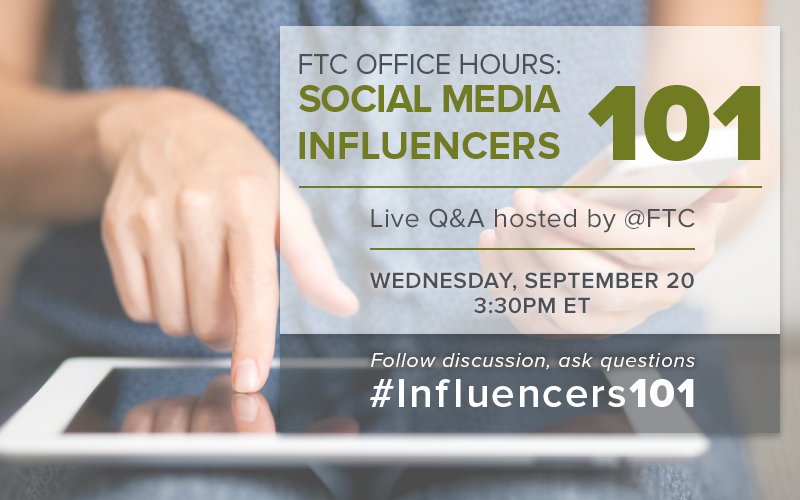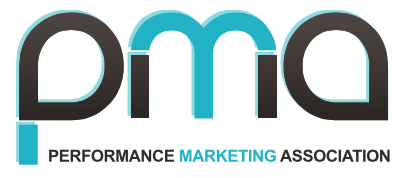
Takeaways from FTC Twitter Chat on Disclosure
This afternoon the FTC held a Twitter chat on the subject of influencer disclosure. I watched and participated in the chat to see what might be new or important information for our readers. The Q&A started with background about the recent CSGLotto settlement and Instagram influencer warning letters. It was clear that the Q&A was meant as additional outreach after that big release. From there the FTC “staff” started taking questions, many of which I think were submitted in advance. Here were some of my observations based on both the questions asked and the answers given.
Disclosure for Non-US Companies and Travel
One of the most-asked questions before the chat even started was whether the FTC disclosure rules apply to companies outside the U.S. It surprises me that this was asked so much given that the FTC already said in its FAQ: “To the extent it is reasonably foreseeable that your YouTube videos will be seen by and affect U.S. consumers, U.S. law would apply and a disclosure would be required.”
The FTC did answer that when a U.S. influencer is traveling abroad, the situation is the same and foreign law may ALSO apply.
Using #Ad/Ad/#Paid/Partner as Disclosure
The FTC reiterated (again this was in the FAQ) that #ad is sufficient and that it cannot be mixed in with other hashtags such that it gets overlooked. They did not say that it MUST be at the very beginning but did say to “make it visible in the beginning whenever possible.”
When asked whether #ad is the preferred disclosure, the answer was that it is “great IF it’s placed where it’s hard to miss.” “Ad” could be used without the hashtag if it is visible and hard to miss.
Surprisingly, the FTC said that “hashtag XXPartner” would be good enough when XX is the brand name. That’s one that I can see a lot of affiliates and influencers using on social media.
Snapchat/Instagram Stories/Pinterest
The FTC suggested that disclosure be superimposed over the images on these platforms. In addition, the disclosure should be “easy to notice & read” in the time the followers have to look at the images. This is interesting because most people have just been adding #ad to the descriptions on Instagram and the FTC has previously said that was okay as long as you didn’t have to click on the “more” to see the disclosure. Perhaps it is a distinction between Instagram and Instagram Stories?
If all of the pictures are going to be seen in a story, disclosure is sufficient on the first one alone.
As for Pinterest, the FTC answered that either a superimposed disclosure or one in the description would be okay as long as it was clear and conspicuous.
Working for a Brand
This is interesting with regard to consultants and OPMs who post about their clients. When asked if you must disclose posts if you “work for a brand,” the FTC said that you do need to disclose your connection to the brand even if you are not being paid for the specific posts.
Be sure to follow the PMA on Twitter and Facebook to stay up to date about the latest news in affiliate and influencer marketing.
Images as Disclosure
My personal question to the FTC was whether images could be used for disclosure rather than text (because this is what I do on all my blogs). The FTC responded:
Yes, if it stands out, followers can’t avoid it, and they understand it. #influencers101 https://t.co/LyqCfoxtor
— FTC (@FTC) September 20, 2017
So that’s something a lot of bloggers will want to know!
Affiliate Marketing Standards and Self-Regulation
In light of an upcoming initiative by the PMA to put together a set of standards for our industry and attempt to work with the FTC on getting them approved, I asked on behalf of the PMA how we can get the FTC to certify our standards. Their response:
There’s no process for “certification” but staff is happy to give informal guidance. #influencers101 https://t.co/LmbOANUL5K
— FTC (@FTC) September 20, 2017
With that in mind, we will continue to move forward in our initiative over the next quarter to draft a set of standards for our industry and meet with the FTC staff Q1 2018.
Disclosure Built Into Platforms
One intriguing answer was regarding whether “built-in disclosures” on different platforms are sufficient for disclosure. The FTC warned not to assume that the built-in disclosures are sufficient. In fact, they specifically stated that “FTC staff doesn’t think that the built-in YouTube and FB tools suffice.” Also “The same applies to built-in Instagram tool.”
Affiliates versus Influencers
We have talked a lot lately about the overlap between affiliate marketers and influencers. One question asked was “Affiliate and influencer marketing can overlap. At what point would the FTC look at an affiliate as an influencer?” The FTC responded with a few different things:
- Reviews with affiliate links should be disclosed
- When an individual posts “content” as an affiliate, he is an influencer
- When an “anonymous web site” is set up by an affiliate, the affiliate “is more like the advertiser”
We’re not sure what that last one means. Maybe things more akin to coupon sites, price comparison sites, etc. where there is no actual content generated?
Social Media Disclosure When Affiliate Links Are On Blog
I loved this question because I get it a lot. “Do I need to disclose on my Facebook ad that my blog post has affiliate links? Or is the disclosure on the blog enough?” I interpret this to mean not only the Facebook ad but any social media posts that link to the blog post. The FTC responded “The blog itself is probably good enough.” This makes sense because the consumer is still seeing the disclosure before they click on the affiliate link and actually puts the disclosure closer to the link than if it were on the social media platform.
When Influencers Do Not Comply
I would have liked to have seen more information about who is liable when disclosure isn’t made properly. The one question they did answer was what a brand should do if the influencer doesn’t comply with their written advice. The FTC responded that the brand should “monitor & follow up” but that if the influencer dismissed the brand, there isn’t anything else the brand can do. They didn’t outright say that the brand would be liable.
These were not all of the questions and answers out of the 26 but rather the ones I thought most impacted our industry. For more information, I would encourage you to check out the #Influencers101 hashtag on Twitter to see the full chat.
Follow the PMA on Twitter and Facebook to keep up with industry news.
Latest posts by Tricia Meyer (see all)
- Can the PMA Help Your Professional Development? - April 23, 2024
- Video Replay of Navigating Subnetworks: Strategies For Retailers And Publishers - April 11, 2024
- Meet PMA Members at PI LIVE USA in Miami - April 8, 2024



 Follow
Follow
Sarah Auerswald
September 20, 2017 at 9:15 pmThank you for this recap! I missed the chat and was looking through the tweets to get some answers. This is much better – very comprehensive.